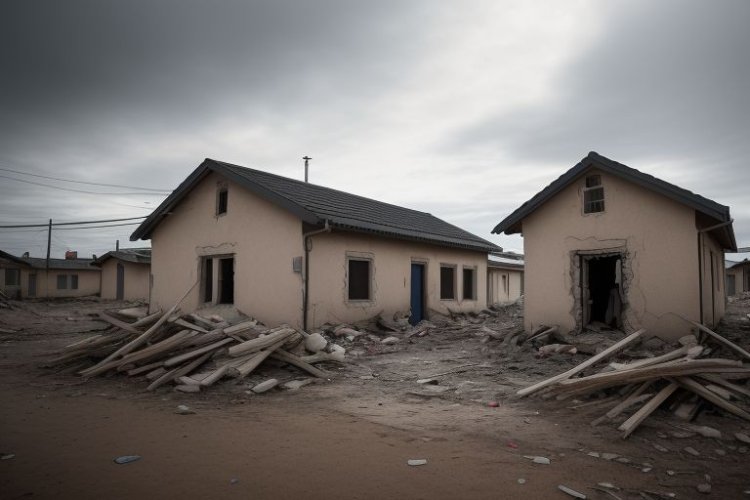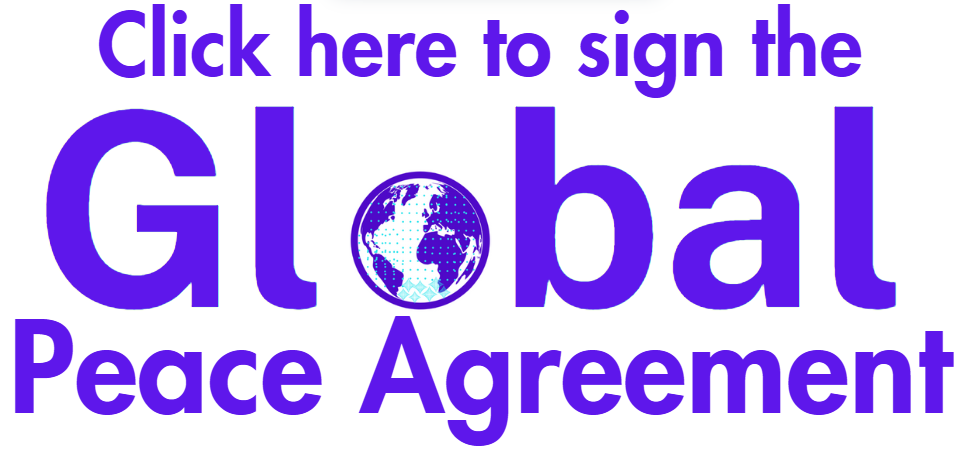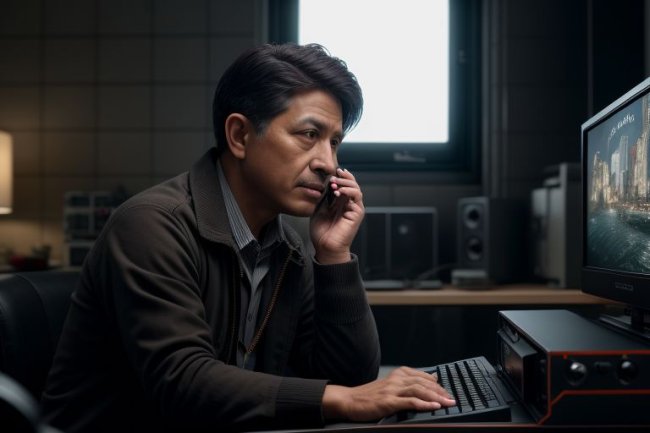AVOIDING WAR: STRATEGIES AND APPROACHES pt 1.
In a world that has borne witness to the devastating consequences of war, the imperative to pursue peace and seek strategies to avoid conflicts has become increasingly urgent. Throughout history, humanity has grappled with war’s destructive nature and long yearned for alternatives to resolve disputes without resorting to violence.

Here we will set the stage for an exploration of the fundamental principles and practical approaches that can guide individuals, communities, and nations in their collective endeavor to steer clear of war. The collective consciousness of humanity has been deeply ingrained with the desire to prevent and avoid war. The haunting memories of past conflicts, the immeasurable loss of lives, the shattered communities, and the enduring scars on nations have served as poignant reminders of the need to prioritize peace. From the devastation of World Wars to regional conflicts that have claimed countless lives, the consequences of war have left indelible marks on our shared history. Let us journey to essential strategies and principles to guide us toward a more peaceful world. Understanding the root causes of conflicts is a crucial starting point. By analyzing the intricate web of factors contributing to tensions and hostilities between nations and communities, we can gain insights into the underlying dynamics that often fuel the outbreak of violence. Economic disparities, ideological differences, territorial disputes, religious or ethnic tensions, and competition over resources are just a few examples of the complex interplay that can give rise to conflicts.
DIPLOMATIC NEGOTIATIONS: TOOLS AND TECHNIQUES FOR PEACEFUL DIALOGUE
Diplomatic negotiations play a critical role in fostering peaceful dialogue and providing a framework for resolving conflicts and achieving mutually beneficial agreements. As an essential component of international relations, diplomatic negotiations are the backbone of diplomacy, guiding nations, organizations, and individuals in finding common ground and navigating complex disputes. Through diplomatic negotiations, parties can address their differences, explore compromises, and work towards sustainable solutions that promote peace, stability, and cooperation.
The Dynamics of Diplomatic Negotiations
Diplomatic negotiations are complex processes influenced by a myriad of factors and dynamics. Successful negotiators possess a deep understanding of these dynamics, enabling them to navigate the negotiation landscape effectively. To comprehend the negotiation dynamics, diplomats and negotiators must thoroughly analyze various elements. Historical contexts provide insights into past interactions, conflicts, and agreements, shaping the perceptions and expectations of the parties involved. Cultural nuances, such as communication styles, social norms, and values, significantly impact how negotiations unfold. Being aware of these cultural intricacies helps negotiators establish rapport and build trust. Political landscapes are vital, as national interests, domestic politics, and power dynamics shape negotiation strategies. Recognizing power imbalances and disparities in influence allows negotiators to devise approaches that address asymmetries and promote fairness. Economic factors influence negotiation dynamics, including trade relations, resources, and financial considerations. Understanding all parties’ economic interests and constraints allows negotiators to propose mutually beneficial solutions. Identifying potential sources of conflict is crucial for effective negotiation strategies. By anticipating contentious issues or diverging interests, negotiators can devise strategies to mitigate conflicts and seek areas of common ground. A deep understanding of the dynamics in diplomatic negotiations empowers negotiators to approach negotiations with clarity, insight, and strategic acumen, increasing the likelihood of successful outcomes.
Creating the Foundation: Trust and Relationship Building
Building trust is vital in diplomatic negotiations, setting the tone for constructive and collaborative dialogue. Trust is built through credibility, reliability, and shared purpose among the parties involved.Consistent and open communication is a key element in building trust. By maintaining transparent and frequent communication, negotiators demonstrate their commitment to sharing information and fostering a climate of honesty. This helps alleviate suspicions and misunderstandings, fostering an environment of trust and cooperation. Transparency in negotiations is crucial. When negotiators are transparent about their objectives, concerns, and limitations, it promotes an atmosphere of sincerity and builds confidence among the parties involved. Transparent negotiations also help prevent misperceptions or hidden agendas, enabling a more focused and productive negotiation process. Developing personal connections and engaging in cultural exchanges also play a significant role in trust-building. Negotiators can establish empathy and foster mutual respect by taking the time to understand each other’s backgrounds, values, and perspectives. This cultural exchange helps bridge gaps, reduces potential biases, and enhances understanding, leading to greater trust among negotiators.

Finding common ground is another essential element in trust-building. Identifying shared interests, values, or goals allows negotiators to establish a sense of collaboration and cooperation. Recognizing areas of agreement helps build rapport and creates a solid foundation for moving forward in the negotiation process. Overall, trust and relationship building are essential components of successful diplomatic negotiations. By focusing on transparent communication, fostering personal connections, and finding common ground, negotiators can establish an environment of trust that promotes effective and constructive dialogue, increasing the likelihood of reaching mutually beneficial outcomes.
Effective Communication: The Key to Dialogue
Effective communication is crucial to diplomatic discussions because it helps parties to overcome obstacles, enhance mutual understanding, and encourage productive discourse. Skilled negotiators understand the importance of clear and concise communication in conveying messages accurately and avoiding misunderstandings. Active listening is a critical component of effective communication. By attentively listening to the other parties’ concerns, perspectives, and interests, negotiators demonstrate respect and show a genuine willingness to understand their viewpoints. This active engagement helps build trust, encourages open dialogue, and creates an environment conducive to finding common ground.
The use of diplomatic language is essential in diplomatic negotiations. Diplomats and negotiators often employ tact, discretion, and careful wording to convey messages effectively while maintaining a respectful and non-confrontational tone. Diplomatic language facilitates the exploration of sensitive issues and reduces the likelihood of escalating tensions or provoking conflicts. Managing emotions is a crucial aspect of effective communication in diplomatic negotiations. Negotiators must navigate potential conflicts and tensions while maintaining composure and professionalism. Negotiators can address emotional dynamics and promote productive dialogue by fostering an atmosphere of respect, empathy, and cultural sensitivity. Effective communication in diplomatic negotiations requires active listening, attention to non-verbal cues, the use of diplomatic language, and emotional intelligence. By prioritizing clear and concise communication, negotiators can foster mutual understanding and respect, paving the way for finding mutually acceptable solutions and achieving successful outcomes.
Strategic Approaches: Balancing Interests and Compromises
Negotiators must employ strategic approaches to balance competing interests and reach compromises. One such approach is principled negotiation, also known as interest-based negotiation. This method focuses on identifying the underlying interests and needs of all parties’ involved rather than fixed positions. By understanding the underlying motivations, negotiators can explore creative solutions that address the concerns of all parties. Win-win outcomes become the goal, where all parties can achieve their objectives while maintaining the integrity of the negotiation process.
Negotiation Strategies
• Collaborative, Competitive, and Cooperative Negotiators employ various strategies in diplomatic negotiations to advance their interests and achieve desired outcomes. These strategies can be broadly categorized as collaborative, competitive, or cooperative, each with its characteristics and implications for the negotiation process.Collaborative strategies prioritize cooperation and the pursuit of shared interests. Negotiators employing this approach focus on building relationships, fostering trust, and finding common ground. They collaborate to find solutions to problems, actively looking for ones that fulfill the needs of all parties. Collaborative strategies aim to create long-term partnerships and promote ongoing cooperation beyond the immediate negotiation. This approach is particularly effective in situations with mutual benefit and shared goals, allowing negotiators to leverage the strengths and resources of all parties involved. On the other hand, competitive strategies may be employed when interests directly conflict. Negotiators adopting a competitive stance prioritize advancing their interests and asserting their positions. They may employ tactics such as asserting power, making threats, or using aggressive bargaining tactics to gain advantages over the other party.
While competitive strategies can be effective in situations with limited room for compromise, they also risk escalating tensions and undermining the negotiation process. The adversarial nature of competition can strain relationships and make it challenging to find mutually acceptable solutions. Cooperative strategies strike a balance between collaboration and competition. Negotiators utilizing a cooperative approach engage in cooperative bargaining, aiming to maximize joint gains while protecting their interests. They recognize that negotiation involves a give-and-take process, where concessions may be necessary to reach a satisfactory outcome. This approach emphasizes building relationships, fostering trust, and creating a positive negotiating environment. Cooperative strategies can help maintain a constructive atmosphere, increase the likelihood of reaching mutually acceptable solutions, and preserve ongoing relationships between parties. The negotiation’s nature, the goals and interests of the people involved, and the particular dynamics of the scenario are only a few of the variables that influence the choice of strategy. Skilled negotiators carefully assess the circumstances and adapt their strategies accordingly.
Depending on the evolving dynamics and the specific issues at hand, they may employ a mix of collaborative, competitive, and cooperative approaches throughout the negotiation process. Ultimately, the success of negotiation often lies in finding a balance between cooperation and competition. While collaborative strategies promote relationship-building and long-term cooperation, competitive strategies may be necessary to assert interests and protect vital concerns in certain situations. Cooperative strategies allow negotiators to navigate the complexities of negotiation by seeking joint gains while safeguarding their interests. By understanding the nuances of these strategies, negotiators can effectively navigate the negotiation process and work towards achieving successful outcomes that satisfy the interests of all parties involved.
Overcoming Challenges: Emotions, Deadlocks, and Impasses
In the realm of diplomatic negotiations, challenges are inevitable and can significantly impact the progress and outcome of the process. Emotions, deadlocks, and impasses are common obstacles that negotiators must skillfully navigate to ensure productive and successful negotiations. Emotions can often run high during negotiations, fueled by the intensity of the issues being discussed and the stakes involved. Skilled negotiators understand the importance of managing emotions effectively to maintain a constructive atmosphere. Active listening, the ability to understand and validate the emotions of all parties involved, is a crucial skill in defusing tensions and promoting open dialogue. Empathy allows negotiators to put themselves in the shoes of others, fostering understanding and reducing the likelihood of emotional conflicts. Reframing, restating, or rephrasing statements to promote understanding and common ground can help mitigate emotional barriers and facilitate negotiation progress. Deadlocks and impasses can arise when parties reach an impasse, unable to find a mutually acceptable solution to a particular issue. Skilled negotiators employ various strategies to overcome these challenges and move forward.
Exploring alternative options or creative solutions can help break through deadlocks by shifting the focus from entrenched positions to a more flexible and collaborative mindset. Brainstorming sessions, where all parties are encouraged to generate and share ideas, can spark innovation and reveal potential avenues for resolution. Taking breaks or adjourning the negotiation temporarily can also provide space for reflection and reevaluation, allowing negotiators to return with fresh perspectives and renewed energy. Flexibility is a crucial mindset in overcoming challenges in diplomatic negotiations.
Recognizing that negotiations are dynamic and evolving, negotiators must be open to adjusting their positions, exploring new possibilities, and compromising when necessary. By employing creativity in problem-solving, negotiators can explore innovative solutions that consider the interests and concerns of all parties involved, enabling them to think outside the box and reach mutually beneficial agreements. Additionally, maintaining a commitment to the negotiation process is essential, even in the face of challenges. This commitment signals a willingness to engage in constructive dialogue and an understanding that perseverance and tenacity often achieve progress. Skilled negotiators can navigate challenges and overcome deadlocks and impasses in diplomatic negotiations by effectively managing emotions, exploring alternative options, and maintaining flexibility and commitment. These strategies foster a productive and constructive environment, paving the way for successful outcomes that satisfy the interests of all parties involved. Ultimately, the ability to overcome challenges demonstrates the resilience and skill of negotiators in reaching mutually beneficial agreements and promoting peaceful resolutions.
Sustainable Agreements and Implementation
Reaching an agreement in diplomatic negotiations marks an important milestone, but it is only the first step toward achieving sustainable outcomes. For agreements to have a lasting impact negotiators must focus on effective implementation and monitoring, ensuring that commitments are upheld, and progress is made toward the agreed-upon objectives. Implementation of agreements requires careful planning and coordination. Negotiators must develop clear action plans and allocate resources to support implementation. This may involve establishing timelines, defining roles and responsibilities, and mobilizing the necessary financial, technical, and human resources. Adequate communication and coordination among relevant stakeholders are crucial to ensure a smooth and effective implementation. Monitoring and evaluation mechanisms play a vital role in assessing the progress and effectiveness of implemented agreements.
Regular evaluations allow for an objective assessment of the extent to which agreed-upon actions are carried out and whether they produce the desired outcomes. This feedback loop provides opportunities to identify challenges, make necessary adjustments, and reinforce successful strategies. Monitoring also helps build trust among parties by demonstrating commitment and accountability. To ensure the longevity of agreements, it is essential to have mechanisms to address disputes or disagreements that may arise during implementation. This may involve establishing dispute resolution mechanisms, such as mediation or arbitration, to facilitate dialogue and find mutually acceptable solutions. International institutions and legal frameworks can also support enforcing agreements and resolving conflicts.
The involvement of international organizations, such as the World Subnationals and Nations or regional bodies, can enhance the implementation and enforcement of agreements. These institutions can provide technical expertise, and financial support, facilitating cooperation among parties. They can also play a role in mediating disputes and facilitating compliance with international norms and standards. Regular evaluations and assessments are necessary to ensure the adaptability and effectiveness of agreements over time. As circumstances change, reviewing and adjusting agreements to address emerging challenges and incorporate new knowledge and best practices is important. This iterative process allows for continuous improvement and ensures that agreements remain relevant and responsive to evolving needs. Diplomatic negotiations serve as the foundation for peaceful dialogue and conflict resolution. Diplomats and negotiators navigate complex international disputes by understanding the dynamics of negotiations, building trust and relationships, employing effective communication, and employing strategic approaches.
By mastering the art of diplomatic negotiations, we can create a world where conflicts are resolved through dialogue, compromise, and mutual understanding. Ultimately, the tools and techniques discussed in this exploration provide valuable insights into the art and science of diplomatic negotiations, contributing to a more peaceful and harmonious global community.




















